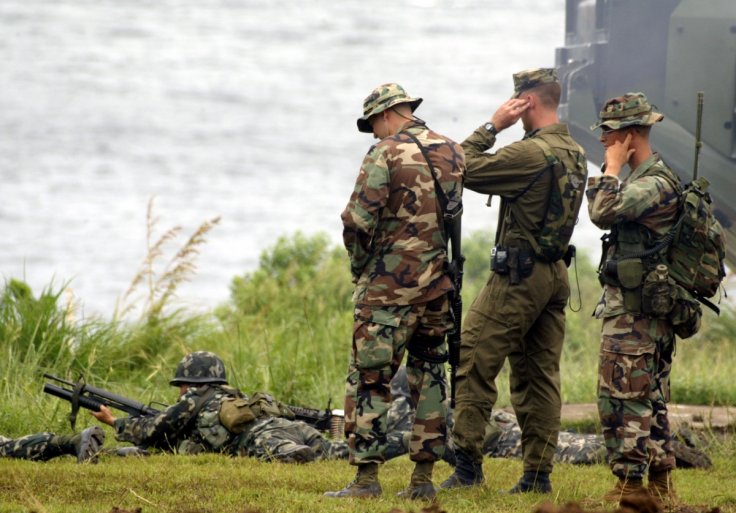
Four members of the elite combat unit of the United States were arrested in Japan after they attacked police cars. The US marines were detained in Japan's Okinawa Prefecture, RT reported, citing Japan's Kyodo news agency. The report said the Americans attacked two police vehicles in a drunken state.
The incident happened even as the Japanese police were in search of a Marine who allegedly invaded a house. In the melee three US marines attacked the police cars, according to the Okinawa Times. Okinawa police took all the four US marines into custody.
Japan currently hosts a very large contingent of around 54,000 US troops in the country. The management of the US military bases in Japan have been a bone of contention between the two countries. The US troops are in Japan as part of a post-World War II agreement to offer security to Japan.
The post-war Japan chose not to have a fully functioning military. The deep scars of World War II pushed the Japanese to an anti-war stance. The Constitution drafted after the war limited the use of force only as a means of self defence. The essence of Japan's pacifist stance under the US occupation was that it will refrain from using force to resolve international conflicts. This policy ruled out military alliances and intervention in regional military conflicts.
Ongoing issue
The US then agreed under treaty to protect the country by stationing its troops. According to the original agreement, Japan would offer its military bases but the cost of running the contingent was on the US. Successive US governments have debated the wisdom of spending top dollar on ensuring Japan's security. Current President Donald Trump has ever been a vocal critic of the American decision to pay for Japan's defence. Trump has often called the Japanese freeloaders and asked Tokyo to take care of its own defence needs.
"Japan will furnish for the duration of this Agreement without cost to the United States ... all facilities and areas and rights of way, including facilities and areas jointly used such as those at airfields and ports," the Status of Forces Agreement (SOFA) of 1960 says.
On the other hand, there has been local opposition within Japan against the deployment of American troops. IN 2018 tens thousands of people took out a march in Okinawa against the proposed relocation of a US military base.









